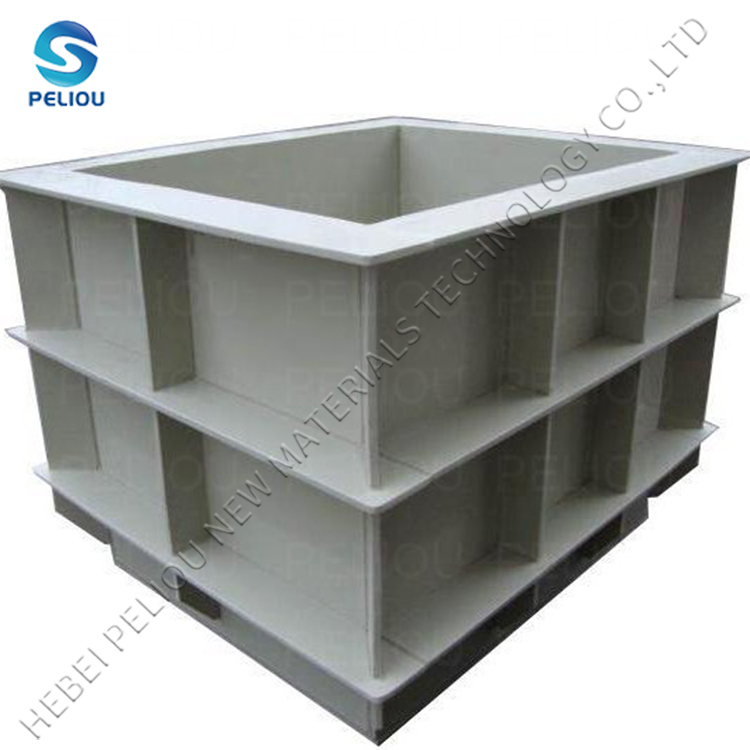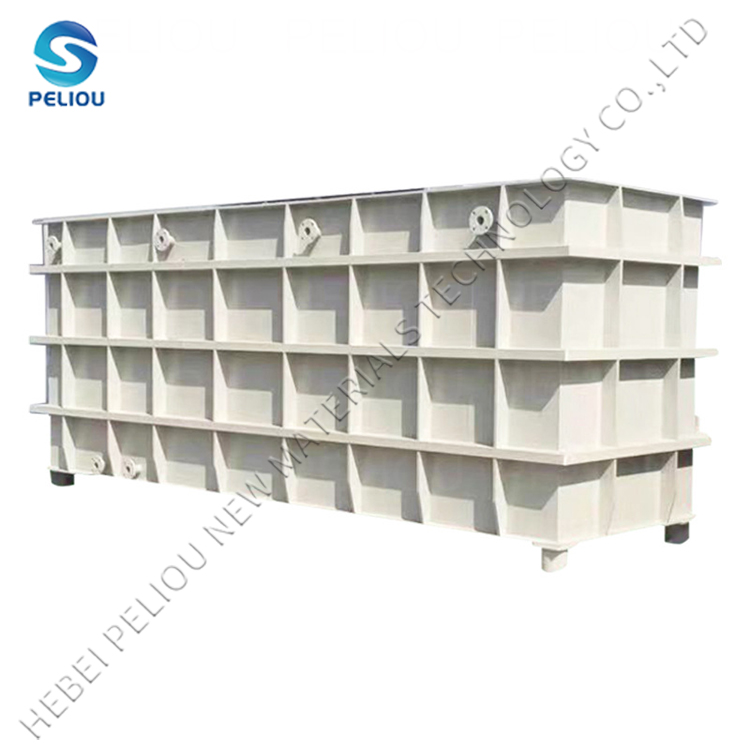PP (polypropylene) welded water tank is a water storage container made of polypropylene plastic sheet through hot melt welding process, widely used in industrial, agricultural, civilian and other fields. Here are its key features and application introductions:
1. Material characteristics
-Strong corrosion resistance: PP plastic has excellent resistance to chemicals such as acid and alkali, organic solvents, etc., and is suitable for storing various liquids (such as pure water, acid and alkali solutions, wastewater, etc.).
-Lightweight and durable: lighter in weight than metal water tanks, but with high strength, good impact resistance, and long service life.
-Non toxic and environmentally friendly: meets food grade standards and can be used for storing drinking water.
-Temperature resistance range: usually suitable for temperatures ranging from -10 ℃ to+80 ℃
2. Welding process
-Hot melt welding: Using professional PP welding guns or automatic welding equipment, the joints of the sheet are fused at high temperatures to form a seamless structure, ensuring sealing.
-Process advantages: No glue, no leakage risk, weld strength close to the base material.
3. Structural design
-Customization: Cubes, cylinders, and other shapes can be designed according to requirements, with capacities ranging from a few hundred to tens of tons.
-Strengthening structure: usually equipped with external reinforcement ribs or frames to enhance pressure bearing capacity.
-Accessory integration: Weldable interfaces for inlet and outlet, level gauge, flange, etc.
4. Application scenarios
-Industry: electroplating solution, chemical raw materials, wastewater storage.
-Water treatment: pure water system, softened water storage tank.
-Agriculture: Irrigation water, nutrient solution storage.
-Civilian: Roof water tank, drinking water storage.

